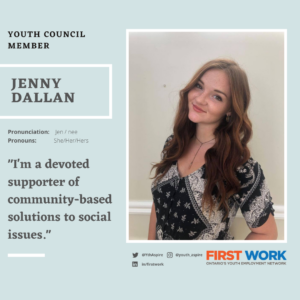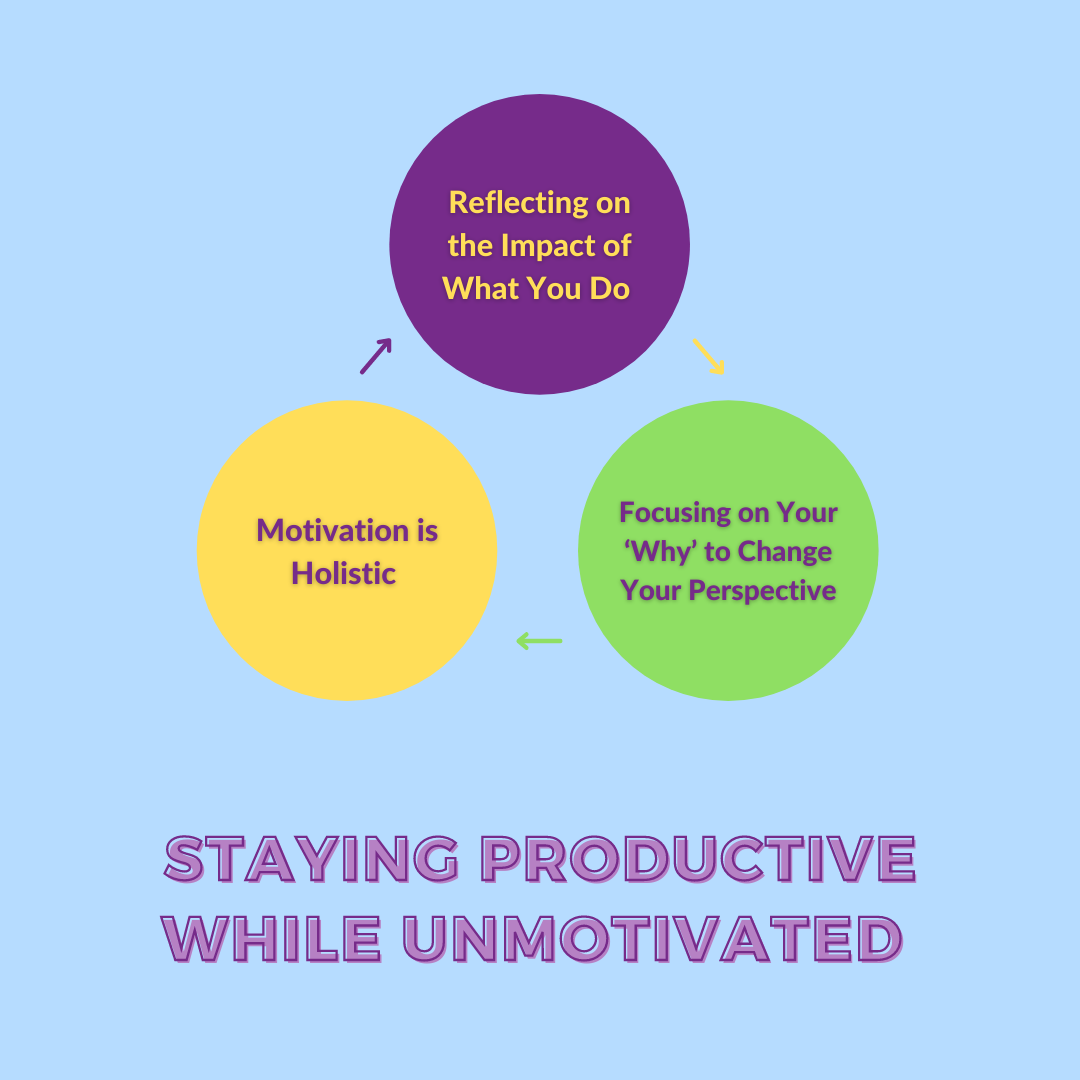“If you’re looking for a quick win, this section is a really easy one to finish off.” Sophia, the Communications Manager at First Work, shared a tip for increasing motivation during our Youth Council meeting.
A quick win. I remember a professor making the same suggestion a few years ago in one of my classes. We were all struggling to start our cumulative papers. Our class’s lack of motivation was partially because it was yet another paper, and partially because none of us really knew what we were supposed to be doing. Our professor had suggested ways to keep ourselves motivated and on track for the many tasks that were due in the coming weeks. A quick win. At first, I wasn’t sold on the idea. I was still influenced by the mindset that I needed to complete a big chunk of a project to be proud of my work. Despite that, I had begun to realize that splitting projects into smaller tasks really improved my motivation and productivity in the long run. Once I realized that I could be proud, and not ashamed of incremental progress, this method really helped improve my motivation.
We all struggle with motivation to some degree. Sometimes it feels like even interesting tasks are hard to start, or finish. Lack of motivation can make us feel ashamed and guilty. Negative thoughts and feelings may be a sign that behavioural change is needed and can prompt productivity, but they should not be your primary strategy for motivation. If guilt and shame become close company when you are unmotivated, they will end up weighing you down more than pushing you forward.
I want to talk more about negative feelings and motivation in part two of this blog, but for now, let’s look at some helpful, sustainable ways to address lack of motivation. My fellow youth council members have shared some motivation tips which I will highlight for you!
Reflecting on the Impact of What You Do
“Something that I often do to stay motivated in my volunteer work is to reflect on my past projects and measure the impact that they have made. The impact may be as small as tutoring one student and helping th em get a better grade on a test, or larger, like coordinating an event or putting together and handing out care packages to several individuals in need. Reflecting on my ability to make an impact always motivates me to keep going.”
em get a better grade on a test, or larger, like coordinating an event or putting together and handing out care packages to several individuals in need. Reflecting on my ability to make an impact always motivates me to keep going.”
– Kirat Dhaliwal, First Work Youth Council Member
Kirat’s strategy can be particularly helpful when we are struggling to feel motivated about work that is actually meaningful to us. Whether it’s a small or large task, Kirat takes time to reflect on the positive impact of work she has already done. This reminds her that her current work will also have a satisfying outcome. Our motivation can suffer for many different reasons. Personal struggles, heavy workloads, or unhelpful relationships are just a few. Taking time to consciously reconnect with a larger goal – that positive impact – is one strategy for being productive while struggling with motivation.
Focusing on Your ‘Why’ to Change Your Perspective
“I stay motivated by focusing on the ‘why’ of what I’m doing. I find if I can ascribe meaning to my task, even if that meaning is something as simple as, “getting through this will make me proud of myself,” or “this will be good for me in the future,” then I find it easier to stay inspired. It’s tough, though, and sometimes it’s really a matter of working to change my perspective on a task. This doesn’t always come easy, but talking with peers who are also working through the same thing is helpful.”
– Jenny Dallan, First Work Youth Council Member
Perspective makes a big difference in how we feel about the things we are doing! Focusing on the meaning of your work for yourself, others, or the ‘big picture’ can help you to keep going even while facing low motivation. It’s great to share your struggles with others who understand and can offer alternative perspectives.
Jenny also makes another great point…
“If it’s possible, sometimes you must know when it’s just best to move on. If staying motivated on a particular task is all-consumingly difficult, maybe that means it’s time to let it go and find things you’re more inspired by to focus on. This is a healthy boundary to set with yourself, if you can/need to, though it’s a choice not always open to everyone.”
Of course, many times we have to work on tasks that don’t hold much meaning for us. However, when we do have an option, it’s important to think about what commitments and responsibilities we have attached ourselves to. If they are optional and not very meaningful, it might be time to make a change. This will very likely leave more motivation for tasks that are meaningful and necessary in our lives.
Motivation is Holistic
These are just a few ways to keep at it while facing low levels of motivation. Of course, other strategies go beyond the task itself. Your personal wellbeing, the people you are working with, and your environment also play a big role in how motivated how feel and your ability to work through low motivation, so it’s important to keep them in mind. Keep trying! Your efforts, small and large, are important and you can be proud of each one!
In part two of this blog, I’ll share more motivation tips from the First Work Youth Council and take a deeper look into negative feelings connected with lack of motivation. Take care!
This blog post was written by Jewelle Edwards of the First Work Youth Council.







